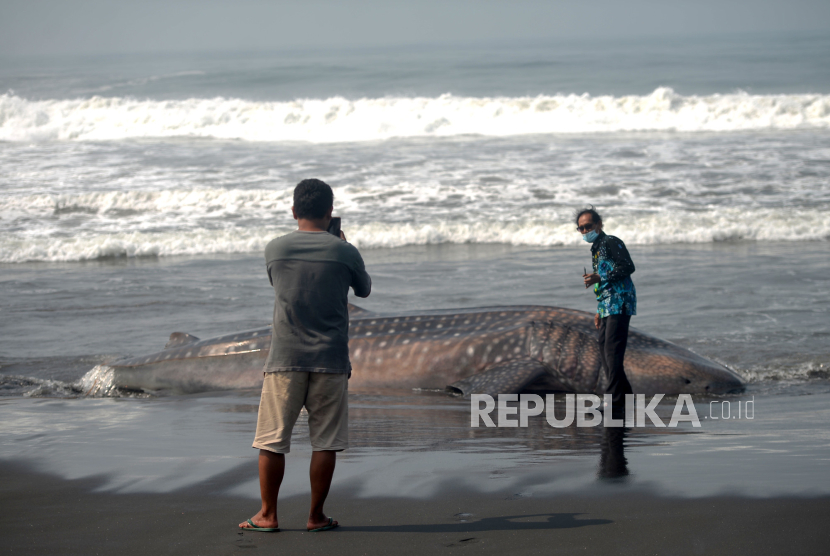REPUBLIKA.CO.ID, BOGOR — Tourism governance and mitigation of whale shark distress are the main highlights in the evaluation of the National Action Plan (RAN) for Whale Shark Conservation. This evaluation was held by the Ministry of Marine and Fisheries (KKP) together with Conservation Indonesia (KI) and Coral Triangle Initiative on Coral Reefs, Fisheries, and Food Security (CTI-CFF) in Bogor.
The forum assesses the achievements of the RAN 2021—2025 as well as devising new strategies for the period 2026—2029. The whale shark (Rhincodon typus), the largest marine species now listed as Endangered according to the IUCN, is facing serious pressure from poorly managed tourism and increasing cases of stranding.
KKP's Director of Species Conservation and Genetics, Sarmintohadi, stressed the importance of strengthening governance. “Factors such as limited emergency handling when whale sharks are stranded, as well as tourist activities that do not comply with technical guidelines, are important notes of evaluation this time,” he said, quoted from a statement by Conservation Indonesia, Wednesday (17/9/2025).
Although the technical rules for whale shark tourism are already in place through General PRL No. 41/2020, their implementation in the field is still not optimal. “In RAN 2026—2029, the standard of animal-friendly and sustainable tourism management, as well as the handling of pollution will be a top priority,” Sarmintohadi added.
KI's Vice President of Programme, Fitri Hasibuan, insists conservation strategies must be science-based and engage the community. “KI places whale shark conservation in the context of ecosystems and public welfare. With research, governance and local community participation, we ensure stewardship that not only preserves marine biodiversity, but also supports sustainable livelihoods,” he said.
Fitri explained that whale sharks have vulnerable biological traits, namely slow growth, low fecundity, and long mature life. Several locations in Indonesia, such as Teluk Cenderawasih, Teluk Saleh, Kaimana, Gorontalo, Probolinggo, and Derawan Islands, become hotspots for juvenile whale sharks. This position places Indonesia as the main habitat of the Indo-Pacific population as well as the holder of global responsibilities.
Monitoring data recorded an average of 20 cases of whale shark attacks each year during 2021-2025. The KI study showed 71 percent of whale sharks that were alive when found were releasable. “Mitigation of disquiet is one of the focus of action because the potential for successful release is quite high,” Fitri said.
Whale shark conservation is also closely linked to Indonesia's commitment within the CTI-CFF framework. These large migratory species are crucial to the health of marine ecosystems and the blue economy. Through the Theory of Change approach, the forum formulates priorities for action ranging from improving tourism standards, strengthening emergency response and expanding multi-stakeholder collaboration.
“Strengthening whale shark conservation governance is not only saving one charismatic species, but also maintaining the balance of marine ecosystems that sustain human life,” Fitri said.


